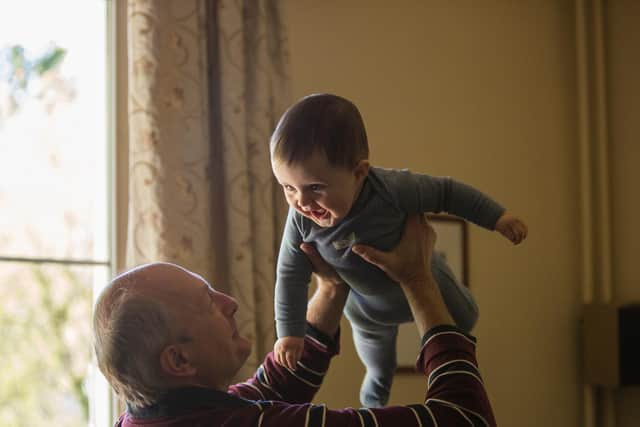Half of grandparents will give grandchildren cash this Christmas
and live on Freeview channel 276
Some 51% will choose to give their grandchildren money, the survey of more than 4,600 grandparents from Saga Savings found.
Nearly three-quarters (72%) said this was because they did not know what else to give.
Advertisement
Hide AdAdvertisement
Hide AdNearly four-fifths (79%) of those planning to give cash say they will give more than £25, while around three in 10 (30%) say they will give a cash gift of more than £75.


Older grandparents were also particularly likely to give cash.
Nearly a third (32%) of those aged 50 to 59 will give their grandchildren cash, compared with almost two-thirds (65%) of those aged 80 to 89.
There are also divides about what grandparents want their grandchildren to do with the money.
Advertisement
Hide AdAdvertisement
Hide AdMore than a third (37%) hope their grandchildren will save the money for the future.
But just under half (48%) hope their grandchildren enjoy spending the money immediately.
Younger grandparents are more likely to say that they hope their grandchildren save the money.
Nearly half (45%) of 50 to 59-year-olds want their grandchildren to save the money, compared with a third (33%) of over-65s.
Advertisement
Hide AdAdvertisement
Hide AdJeff Bromage, managing director, Saga Personal Finance, said: "It should come as no surprise that the older we get the harder it is to choose the right gift for our grandchildren.
"But giving money can have some great benefits. A cash gift can help those young people who opt to spend it to understand the real value of money.
"While those who choose to save it can begin to develop a savings habit that will help them in the long-term."